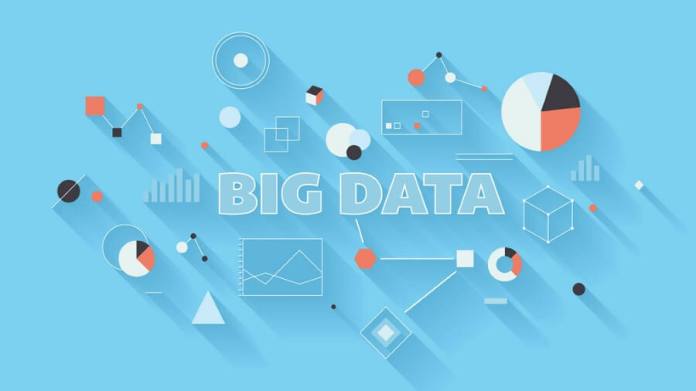Artificial intelligence and Big Data make up two of the most important technological innovations that have taken the world by storm.
Service providers utilize these technology trends to keep up with fierce competition and offer customers highly dynamic and effective solutions.
Currently, most companies are realizing the anticipated benefits of artificial intelligence, precisely at the point where analytics and smart technology intersect.
In spite of the many years of hope and promise, 2018 is deemed to be the year when artificial intelligence gains considerable traction, especially within Fortune 1000 entities.
A staggering 97.2% of executives indicate that their companies are currently investing in launching or creating AI and big data initiatives.
Amongst the executives involved in the survey, there is an emerging consensus that both AI and big data initiatives are becoming closely entangled.
Also, 76.5 % of the surveyed executives reported that the widespread availability and proliferation of data is currently empowering cognitive and artificial intelligence initiatives within their businesses.
Currently, executives can see an actual direct correlation between big data capabilities and artificial intelligence initiatives.
In fact, huge companies are now convinced that they have direct access to useful volumes and sources of data, which they could feed artificial intelligence algorithms to help them in detecting patterns and understanding behaviors.
Although they do not rely on data subsets for analysis, these companies integrate AI algorithms, big data, and computing power to generate a wide variety of enterprise benefits, specifically from real-time, client credit approval to new product provisions.
Using Big Data to Drive Innovation
In the big data space, where increasing volumes of data drawn from more extensive sources at ever-rising velocities, the impediment to those gathering information appreciates the broader application of the data sets within their possession.
It may not be astonishing that the sales and marketing director of BMW disclosed to the North American International Auto Show that the company had received a massive number of requests to utilize the collected data by its car before they were rejected ordinarily.
The move by the firm appears to have been triggered not only by privacy concerns but also probable unplanned outcomes of making customer data accessible to third parties, where it may be prone to unwanted exposure.
Businesses have to focus on both the nature and quality of the captured data.
Assessment ought to be made from the start, mainly looking at whether it is essential for data that comprises a personal quality to be gathered.
Using Artificial Intelligence (AI) to Drive Innovation
Company executives reported that investments in both big data and AI are beginning to generate meaningful outcomes.
Nearly three-fourths of the executives indicated that their companies are able to attain measurable results from big data and artificial intelligence investments.
Executives specifically reported key successes in projects to improve decision-making, through cutting-edge analytics, particularly with a 69% success rate and through a reduction in cost, with a 60.9% success rate.
What’s more, business entities are now utilizing artificial intelligence (AI) investments not only in expediting time-to-market for new products and services but also in improving customer service.
While mainstream entities are redirecting their focus to the future, there is a rising consensus that AI holds the key.
With 93% of the surveyed executives recognizing artificial intelligence as the main disruptive technology that their organizations invest in, particularly for the future, there appears to be a consensus that companies ought to utilize cognitive technologies in a bid to remain ahead of their competition during this disruptive period.
Artificial intelligence (AI) investment can be expected to rise as businesses position themselves for competition in the future.
These organizations that prove to be proficient in creating and completing initiatives using big data and artificial capabilities are likely to be the ones, which are best placed in deflecting the risks posed by data-powered, agile competitors in the next ten years.
Convergence Big Data and AI
The intersection of artificial intelligence (AI) and big data has proven to be one of the most vital developments, which is redefining the future of how entities power business value from both their analytics capabilities and data.
For the first time, the availability of numerous volumes and sources of data is awakening machine learning and artificial intelligence capabilities that were previously dormant for many years.
These capabilities were dormant due to the inability to analyze huge volumes of data in milliseconds, limited sample sizes and inadequate data.
Digital capabilities have transformed data, specifically from batch to always-available, real-time online access.
Even though many artificial intelligence technologies have been available for several decades, it is only recently that they were able to use sufficient data sizes for meaningful learning and results.
The ability to access big data sizes with agility and ready access is triggering a rapid growth in the application of AI and machine learning applications.
Big data provides an environment that facilitates the discovery of data through iteration.
In turn, enterprises can be expected to experiment more, learn faster and move quickly.
In other words, big data helps organizations in failing fast and learning faster.
Currently, big data analytics solutions are shifting to a new stage of maturity, particularly one that is set to bring not only significant disruption in the industry but also greater business impact in the approaching decade.
While big data projects continue to mature, companies are currently integrating the agility possessed by big data processes with artificial intelligence (AI) capabilities scale in a bid to expedite the delivery of business value.
Reliable companies in the software development space deliver reliability and peace of mind as far as the harnessing of artificial intelligence systems and big data is concerned.
Software and technology service providers, cater to various customers who are spread out across the entire industry to not only assist them in making the most out of the massive piles of data gathered every day but also in utilizing artificial intelligence systems.




















